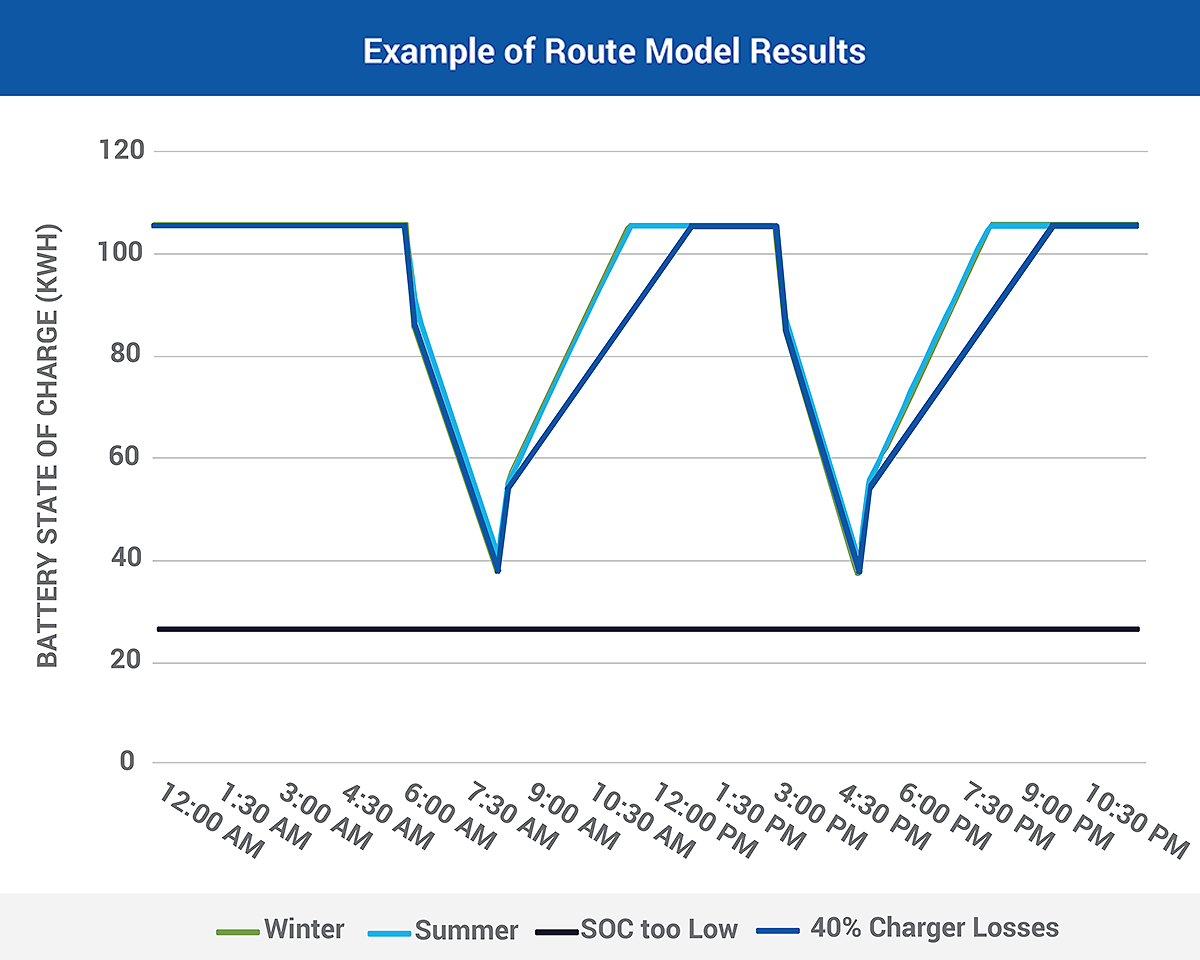Sonoma Clean Power Identifies a Path to Electrification for Two School Bus Operators in California
Tangible Paths for Implementing an All-Electric School Bus Deployment
In 2020, Sonoma Clean Power (SCP) selected the Cadmus Group to conduct its school bus electrification study for the Mendocino Unified School District (MUSD) and the West County Transportation Agency (WCTA).
Challenge
SCP recognized that the switch to all-electric buses for MUSD and WCTA’s school bus fleets was a daunting task without the guidance and support of a roadmap. Cadmus was asked to develop short- and long-term recommendations for achieving fleet electrification.
Solution
Cadmus met with the two school bus agencies to assess their existing fleets, discuss route operation requirements, and to identify their current electrical infrastructure capacity and potential upgrades. By identifying the best routes to deploy electric school buses, Cadmus was able to recommend specific bus makes and models, charging equipment, and charging protocols to maximize utilization and minimize costs. The study also included a solar potential analysis and provided guidance on available funding and financing programs.
Cadmus modeled bus and route suitability using an Excel-based, 24-hour model with 15-minute increments with weather data for the coldest winter and warmest summer days using actual 2019 meteorological weather data. We incorporated bus model and charger parameters-including bus weight, battery capacity, maximum charger power rating, HVAC system ratings, and bus performance (in electric energy consumption per mile)-collected from original equipment manufacturers and published specification sheets. For each bus and route combination, we modeled the battery state of charge for each hour of the day and an energy breakdown of each subsystem, as illustrated in the figures below.

In addition to our fleet modeling services, we provided guidance on integrating onsite solar energy systems to offset the added electric cost of electric bus charging and recommended applying for various statewide and national grants.
Results
The Cadmus team developed tangible paths to implement an all-electric school bus deployment for the two fleet operators: West County Transportation Agency and Mendocino Unified School District. Each agency was given a report by Cadmus outlining short- and long-term recommendations for achieving fleet electrification. SCP has shared some of the findings of this report as described below.
For the West County Transportation Agency:
- The existing electric grid infrastructure for WCTA’s main bus yard may already be capable of supporting over 80 battery electric bus (BEB) EB chargers; WCTA’s new parking area appears to have the capacity for at least five BEB chargers.
- There is at least one commercially available Type A BEB model currently on the market that can meet WCTA’s energy needs for four out of the six bus routes selected for analysis.
- The two WCTA bus routes that cannot be served by Type A BEBs currently on the market operate over 140 miles per day. However, the BEB market is constantly evolving and WCTA can and should discuss their route requirements and interest in higher range with manufacturers.
- WCTA’s main bus yard and new parking area have sufficient room for a total solar photovoltaic (PV) capacity that could offset the annual energy consumption of nine BEBs.
For the Mendocino Unified School District:
- There are commercially available high-range BEB models on the market today that can meet MUSD’s energy needs for all five routes.
- While adding a BEB to MUSD’s fleet would increase the average monthly electricity bill by approximately $480 per vehicle, MUSD could save approximately $270 per route per month in net fuel costs.
- MUSD could install up to 65 kW-DC of solar photovoltaic energy at their bus barn, which could offset the annual energy consumption of at least two (2) BEBs.
Learn more about our energy services.